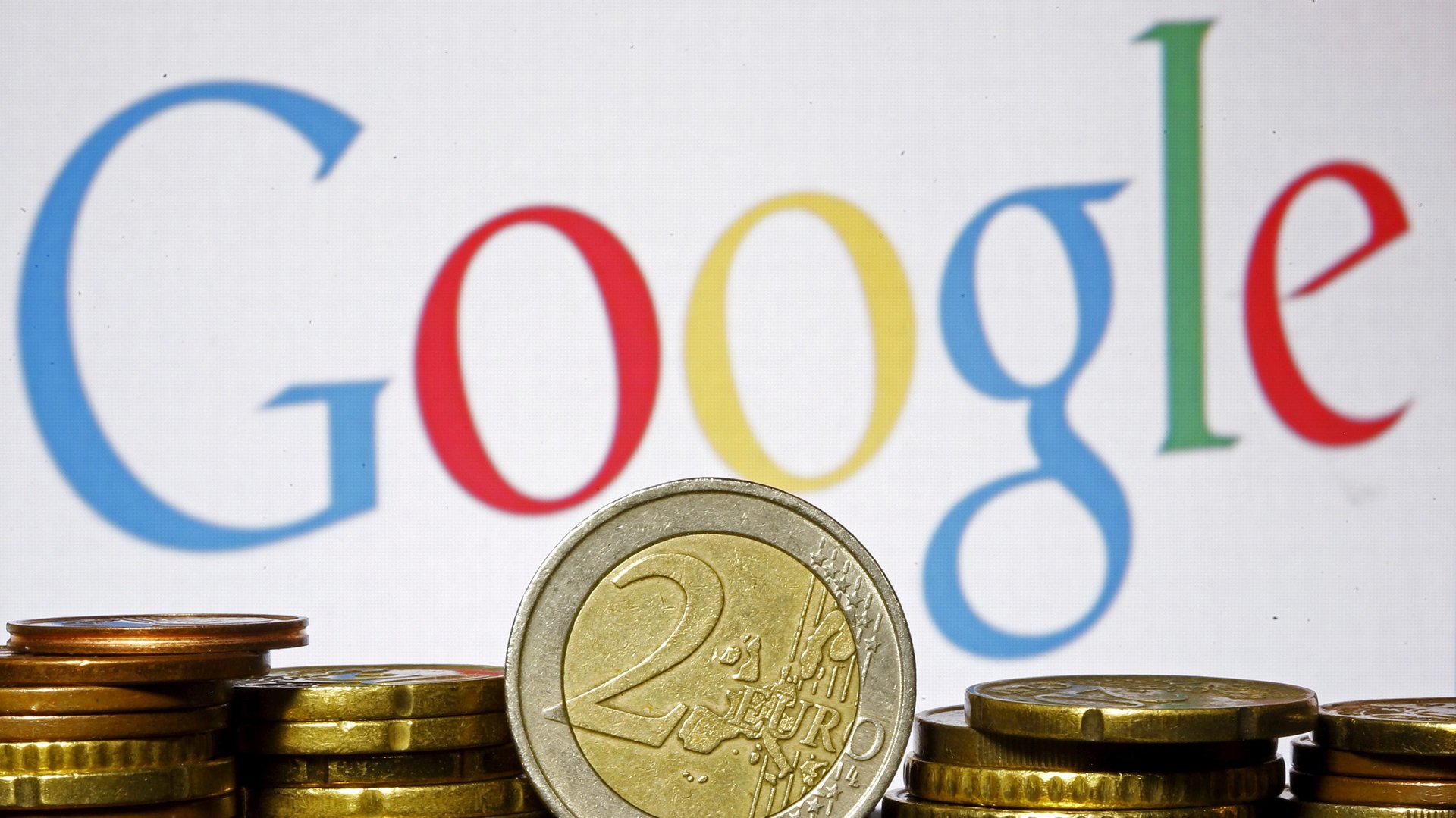The EU’s record fine is just the beginning for Google’s monopoly troubles around the world
That record-breaking €2.42 billion ($2.7 billion) anti-trust fine against Google by the Europeans today? It’s just the beginning of the search giant’s troubles with anti-trust authorities.


That record-breaking €2.42 billion ($2.7 billion) anti-trust fine against Google by the Europeans today? It’s just the beginning of the search giant’s troubles with anti-trust authorities.
In wrapping up her prepared remarks, the European Commission’s competition chief, Margrethe Vestager, emphasized that Europe welcomed businesses to its market of 500 million consumers, but that firms must compete on merit, and not use illegal advantages. “We congratulate you for being successful. But the applause stops when you stop competing on the merits,” she said. “You will never get a free pass to stop competing on the merits, neither in the market you dominate nor in other markets.”
It’s that last bit of Vestager’s remarks that should worry Google. The EC has two ongoing anti-trust investigations, which involve Google’s core products and services. One case looks at how it uses its Android mobile operating system to gain an unfair advantage over competitors. The other is a probe into how it binds publishers who serve its ads through its AdSense platform. Both could have more severe repercussions, in terms of financial penalties, and in the way Google organizes its core business.
In the US, Google has so far avoided sanctions by the Federal Trade Commission, the anti-trust regulator, after the agency closed its case in 2013. Leaked documents showed that FTC staffers recommended bringing a case against Google, but that challenges existed in determining whether the company had broken anti-trust laws.
While decisions in one jurisdiction don’t have legal weight in another, says Peter Willis, co-head of competition law at the firm Bird and Bird in London, EU and US competition law do overlap significantly and major cases in one place can influence decisions to act in the other, he says. The FTC’s decision not to proceed against Google will now look like a glaring mistake in light of the EU’s massive fine. Google also faces antitrust probes in Brazil, and rumblings of a case in South Korea.
And there’s more to come from Vestager. Besides the two open probes, the competition chief said that today’s decision lays the groundwork for further investigations into Google. “Today’s decision is a precedent which establishes the framework for the assessment of the legality of this type of conduct,” she said in her speech. Later, when taking questions from journalists, she said Google Images, Travel, and local search results were examples of “verticals” that could be examined using today’s decision as a starting point.
Moreover, today’s decision paves the way for civil suits, Vestager noted at the end of her speech. These can be brought by companies or individuals to a court in any of the EU’s 28 member states. Complainants in the EU case, like US firm Yelp, have not ruled out lawsuits. “Everything is on the table for the next steps,” said Luther Lowe, vice president of public policy at Yelp. Lowe said his firm awaited the commission’s publication of the decision before taking further action.
What’s next for Google? It now faces a series of snowballing penalties if it makes the wrong move. The onus is on the search engine firm to figure out how to stay inside the law by applying the “principle of equal treatment” in shopping search-results. It has 60 days from today to file a report to the commission on its efforts. If it isn’t compliant after an additional 30 days, the commission will start to levy a fine of 5% of its average daily annual revenue. That translates to $12 million a day, based on Google parent company Alphabet’s 2016 revenues. Those sorts of sums are enough to make even mighty Google become frugal.